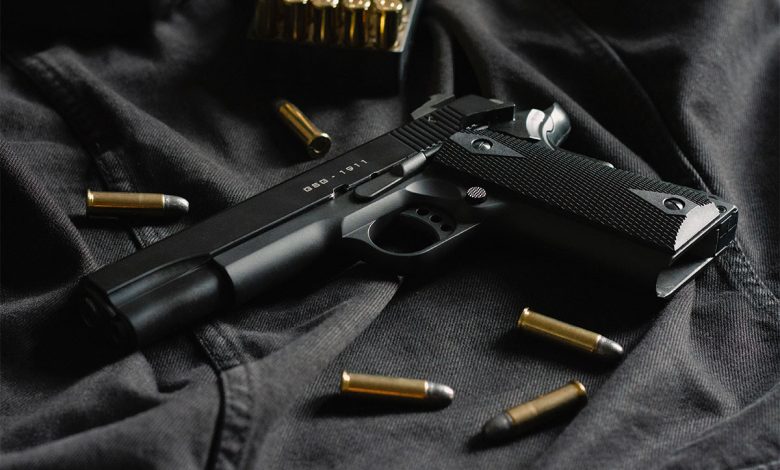How Important To Become A Weapon Engineer In 2022

The word “weapons engineer” conjures up images in the mind of someone who designs or manages weapons. Weapons engineering, on the other hand, has far more potential than you might think.
A weapons engineer works for the federal government, designing, developing, testing, and managing weapons and weapons systems. The type of industry in which they work determines their responsibilities. Many weapons systems are now extremely complex, requiring a large number of systems and components. For example, aerospace engineers, guidance system design experts, and optical engineers all contribute to the development of a fighter jet.
A weapons engineer, regardless of the type of engineer, must have extensive knowledge of weaponry, defense systems, and weapon regulations. To identify weapon flaws, they should work with teams of engineers in consultation with military experts. Also, before starting full production, prepare prototypes.
Difference between weapon engineer and weapon technician
A weapons engineer differs from a weapons technician in that the engineer is in charge of developing new systems or tools. The technician assists in the construction of prototypes or full production pieces. It also helps with installation, as well as servicing and repairing equipment, by following engineers’ design schematics. Another distinction is that technicians frequently work in a military branch, whereas weapons engineers frequently work for defense contractors.
Principal steps to becoming a weapon engineer
In order to fulfill their responsibilities, many weapons engineers possess certain skills. One of the first things to consider if you want to become a weapons engineer is how much education you’ll need. It’s a crucial step in the process of becoming a weapon engineer. The salary of a weapons design engineer is more than double the $41,950 median income in the United States. The amount of money you can make depends on your education, location, and years of experience.
You might find that previous work experience will assist you in becoming a Weapons Engineer. Many Weapons Engineer jobs, in fact, require prior experience as a Mechanical Engineer. In the meantime, many Weapons Engineers have worked as Systems Engineers or Project Engineers in the past. The following are some critical ways to start your career in weapon engineering.
-
Having a qualification degree
You must have the necessary qualifications to begin a career as a Weapons Engineer/Designer. Successful weapons engineers must have great command and knowledge of the following subjects, as they are critical to success in this field.
- Mathematics: It comes as no surprise that mathematics and engineering go hand in hand because measurements are essential in this field.
- Physics: There are many subfields of physics, but theoretical and practical physics are the ones to focus on when studying weapons engineering because they cover laser technology, nuclear power, and mechanics.
- Chemistry: Chemical weapons development and storage will inevitably come up in the course of a weapons engineer’s career.
Weapons engineering is a field that requires a great deal of expertise. A background in electrical or mechanical engineering is required for entry into this field. After earning a bachelor’s degree in these fields, complete an internship or apprenticeship at a government military facility or a private company. It’s the most effective way to gain experience in weapons engineering and break into the field.
-
Learn the working of weapons
A weapons engineer is easily mistaken for someone who develops artillery and weapons. The job, however, is far more complex than that. A weapons engineer creates, designs, experiments, and manages weapons and weapons systems in general. It could be as part of a contractor for a military apparatus or a large-scale private-sector firm. The daily learning and test procedures for the weapon engineers are
- Creating new high-tech weapons or improving existing ones.
- Drones and missiles, for example, are put through rigorous testing.
- Inspection and maintenance of weapons systems and equipment on a regular basis.
- Operating and executing diagnostic analyses for various systems, specialized tools, and equipment to ensure proper functioning.
-
Creating weapon engineering programs
A few highly selective colleges and universities offer multidisciplinary engineering graduate programs in military weapons design. The focus of the programs is on weapon design, development, and combat application. Students learn about explosives, propellants, missile guidance systems, and ballistics. The department of mechanical engineering also provides a graduate certificate in ordnance engineering.
Furthermore, some weapons design engineers earn a Ph.D. and go on to lead defense industry research teams. By participating in any competitions or programs, you will be able to get your career off to a good start.
-
Getting a license
After obtaining all the required qualifications and training, it will be necessary to work under the supervision of a professional engineer. Obtain a minimum of three to four years of practical training experience. It all depends on where you live in the country or state. Only after you’ve completed these requirements will you be eligible for competency exams to earn a professional engineer’s license.
To work as a weapons engineer, your employer may require federal approval and a detailed background check. You’ll be working on sensitive and classified projects, so this is especially important. Aside from obtaining an official license, you might want to join one or more engineering associations. This will also assist you in making better future connections.
At both the high school and college levels, there are dozens of national and international science competitions. They might be able to help you get a better job in the future.
-
Develop your portfolio
A portfolio is not necessary for a weapons engineer. It is possible that having one will improve your job prospects. Include all completed projects and assignments, as well as relevant statistics and outcomes, in your portfolio.
A portfolio is an excellent way to summarize your entire life’s work in a single glance. Whether it’s a framework for a project you’ve been working on or the completion of a modern weapons system for the government’s army.
It’s critical that you keep improving your skills and updating your portfolio. As a result, you’ll be able to stay ahead of your game and ready to challenge the most pressing industry issues.
Conclusion
To summarize, the main theme of this article is to describe the significance of the weapon engineering profession dominating progressively. Electrical engineering, physics, mechanical engineering, optics, and electronics all play a role in weapons engineering.
Most weapon systems today are highly specialized. They use advanced technology that took a long time, a lot of money, a lot of effort, and a lot of research to develop. Weapons engineers are responsible for researching, constructing, and maintaining high-tech weapon systems for governments. They collaborate with Armed guard services, unarmed guard services, security personnel, agencies, and other military forces to deal with such problems. In 2022, becoming a weapon engineer would be an excellent option to start your career.
Read more: What is Large-format Printing? Everything you Should know






